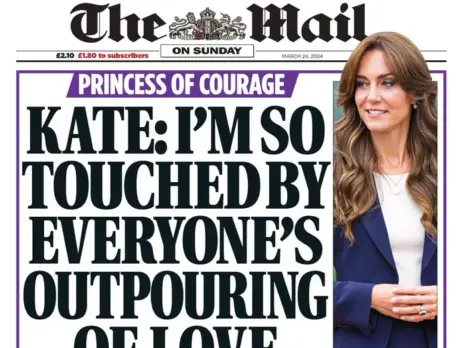
When Alan Rusbridger stepped down after 20 years as Guardian editor in May last year there was no hint of the back-stabbing and betrayal that lay ahead of him.
The title had been garlanded with honours, most significantly a Pulitzer prize, it had become a global force (with more than 7m unique website browsers per day) and most importantly it was said to be finally on a firm financial footing.
Operating losses had fallen from £44m in the year to April 2012 to £19.1m in the year to April 2015. In the peculiar economic terms of The Guardian, this was seen as being a great place to be.
With £838.3m in the investment fund, and another £200m expected from the eventual sale of Guardian Media Group’s stake in Ascential (formerly Emap), the future looked secure.
Ongoing losses of £20m would enable The Guardian to live comfortably within the interest earned from its £1bn endowment.
It was announced that Rusbridger would become chairman of the Scott Trust – the not-for-profit body which owns Guardian Media Group.
Announcing Rusbridger’s departure as editor in December 2014, GMG chairman Neil Berkett said his successor as editor “will inherit a global media organisation in very strong health and with clear prospects for further growth”.
But since then something has gone terribly wrong. For the year to April 2016, GMG’s operating losses have tripled to £58.6m. In reality some £80m has been spent (and a further £25m disappeared due to declining investments).
The Guardian had gone from being safe “in perpetuity” to facing bankruptcy in less than a decade at the current rate of burn.
And Rusbridger has gone from triumph to having daggers plunged into his back by anonymous former colleagues who apparently want to stop him ascending to the Scott Trust role in September.
First there was a piece in The Times on 20 April previewing a hustings meeting for journalists seeking election to the Scott Trust board.
One “ally” of new editor Katharine Viner told the paper Rusbridger’s appointment to become chair of the Trust was an “Orwellian nightmare”, because they feared he would oppose the proposals to cut 250 staff and at least £54m a year from budgets.
On 27 April, a piece appeared in the FT saying that Rusbridger “cast a long shadow” over The Guardian and noted that he had presided over an expansion in overall headcount by 480 to 1,950 over the last three years.
“It’s going to be hard to destroy the ark of the covenant with Alan looking over your shoulder,” one “editor” told the paper.
One executive said: “Alan has to be held responsible for the mess because he held most power and he was the only one in place for 20 years.
“The way his appointment was made speaks to everything bad about the trust. It lacked transparency and it allowed Alan to use his political capital and intellectual force to seize power.”
Guardian News and Media cut 50 full-time editorial positions in 2013, only to recruit at least another 200 journalists since then mainly to work in Australia and the US.
Rusbridger headed up that editorial expansion and was also the leading exponent of the free online journalism economic model at The Guardian which now appears to have gone off the rails.
But the “blame it all on Alan” strategy conveniently forgets the fact that at least half the extra 480 staff recruited were commercial.
The vast expansion in the US and Australia was led by the Guardian Media Group, Guardian News and Media and the Scott Trust boards. So at least 30 people signed it off, many of whom are still on those bodies and now appear content to distance themselves from the decisions made.
One senior Guardian source told me: “The GMG board are letting this happen [what can broadly be called the briefing against Rusbridger]. It covers up their own shortcomings.”
While all national newspapers are currently suffering from increased competition from Facebook and Google, the rise of ad-blockers and plunging print advertising – The Guardian appears to be feeling it harder than anyone else.
Advertising sales appear to have collapsed and no viable alternative has been found to replace the lost income.
It is possible that it suits the existing senior executive team to let the blame for their current woes rest at Rusbridger’s door.
When I told the Guardian News and Media press office I was planning to run a story on the governance issues about Rusbridger moving from editor to chair of the Scott Trust and the suggestion that he was to blame for the current losses, they said they had nothing to say. Perhaps this is not a narrative the company wants to stop.
But it was current chief executive David Pemsel who oversaw the doomed plan to turn a former goods shed at Kings’ Cross into a 30,000 square feet venue. Work was halted in January 2016 more than a year into the project.
He also did much of the hiring which has caused the current round of redundancies in his previous role as deputy chief executive and he headed up the commercial expansion overseas.
A senior Guardian source said it was “shameless” that executives were now apparently briefing against Rusbridger when “they were all involved” in the expansion which has necessitated the current savage cutbacks.
Some fear that Rusbridger will fall on his sword rather than take the Scott Trust job. But there has been no indication he will.
In the mean time 100 journalists face losing their jobs and many insiders are angry and upset that the business was allowed to go so wrong so quickly.
Rusbridger would no doubt argue that the strategy of making free online journalism pay through scale and and global expansion appeared to be working when he stepped down. And he has always been clear that he is open-minded about reviewing the paywall in the future.
There should be some interesting meetings in September when Rusbridger steps up to the Scott Trust role.
As the assassins of Julius Caesar knew, if you are going to wield the knife against a lauded and powerful leader make sure the blows are fatal.
Alan Rusbridger on hacking, Snowden, Wikileaks and losing £300m to make The Guardian financially secure
Guardian-owning Scott Trust faces challenge from journalists over losses, governance and redundancies
Email pged@pressgazette.co.uk to point out mistakes, provide story tips or send in a letter for publication on our "Letters Page" blog






